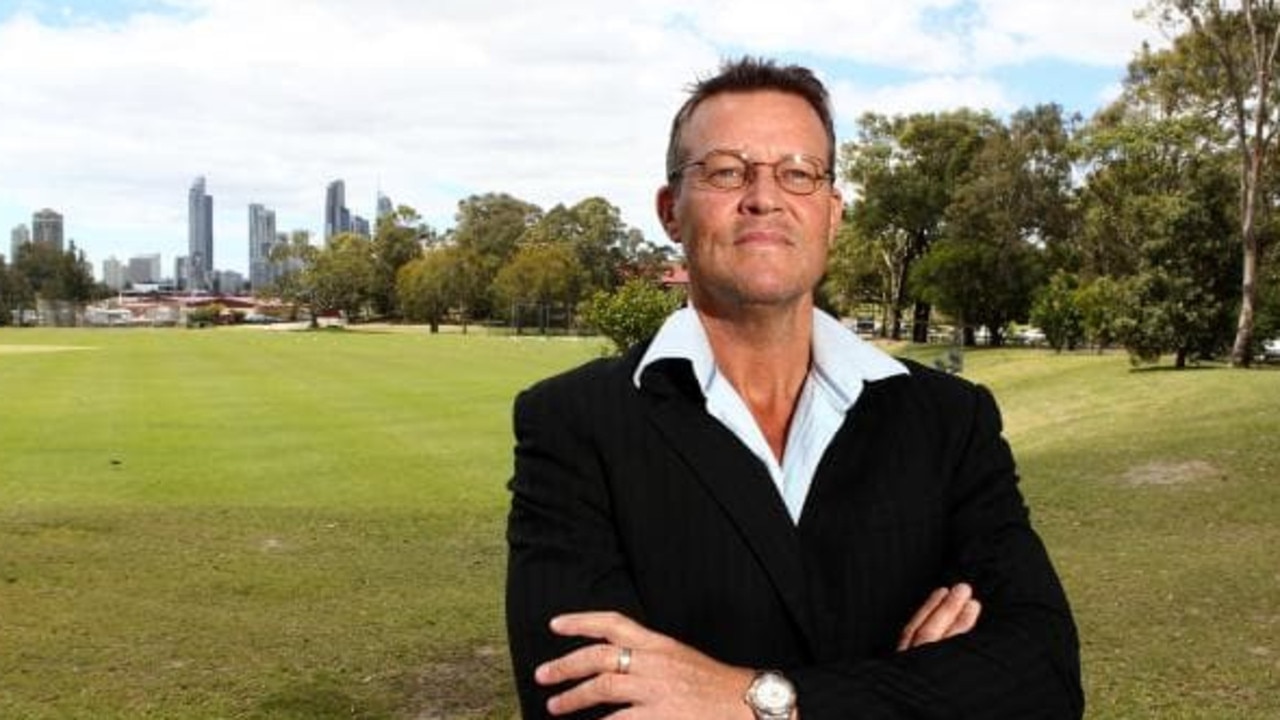‘Debt Detective’ William Edgar slams ‘corrupt’ industry
For years, William Edgar “bullied, intimidated and harassed” people for money — until one horrific tragedy opened his eyes.
For an entire decade, William Edgar made a decent living off the misery of others.
As one of the best debt collectors in Australia, it was Mr Edgar’s job to “bully, intimidate and harass” Aussies who had fallen on hard times.
Mr Edgar was one of the toughest in the business, and at the time, he was certain he was doing the right thing.
• $40m chicken joint Aussies love
• The Block result proof of housing crash
• Mum stunned by Woolies mix-up
“I always thought that they got themselves into the sh*t, so it was up to them to get out of it — and if they couldn’t, we had to force them,” he told news.com.au.
But one day, a tragedy occurred.
Mr Edgar had been “harassing” a woman over the phone over the payment of a traffic fine debt — and later heard she had taken her own life.
“I was devastated — I come from a really hard, rough background myself, and when I heard the lady had taken her life, first off I blamed myself, thinking I had harassed, belittled and intimidated her to death,” he said.
“That’s what woke me up — these people might actually be telling the truth.
“She had other things going on in her life and I was just a contributor, but at the same time, nobody on the front line of debt collecting knows who they are dealing with — you don’t know if it’s a suicidal woman, there’s no care, concern or regard given; you’re just given a sheet of jobs and you have to fulfil a quota.”
Mr Edgar was so shaken up by the woman’s death he started to take a closer look at Australia’s “billion dollar” debt collection industry — and he was shocked by what he found.
He discovered the company he was working for purchased people’s debt in pools rather than individually for “next to nothing” — as little as 1 per cent of their total debt — and that most debts were insured.
In other words, people were being hassled for no real reason.
“I sat in an office with 50 people on phones threatening people and making millions for the company, and to find out it was all bulls**t, I was pretty shattered,” he said.
As a result, Mr Edgar left the industry.

“Unfortunately the system is set up for people to fail. It’s a bad system and it’s also corrupt,” he said.
For the past 14 years, Mr Edgar has worked as a “debt detective” by helping the very people he once used to intimidate via his company, Freedom from Debt Collectors.
“What I do is investigate the debt. If someone is being harassed over credit card debt from a few years ago, I can look into it and find out if the bank has actually insured the debt, had it underwritten and then sold the debt for little to nothing,” he said.
“If a debt collector comes after the original amount and it has been written off, that means there is no debt.
“The banks insure their debts — but they don’t tell people that.”
Mr Edgar said there was often a lack of sympathy for people who had fallen into debt, as people believed it was the result of poor choices.
But he said in reality, most people he dealt with were “average mums and dads” who owed just $15,000-$30,000 after a change in circumstances.
He said credit card debt, school fees and “12 months interest free” buy now, pay later schemes were the most common ways people got into debt.
“People fall into this, and it’s OK to say that people should be aware of their own circumstances, but that changes and things go wrong. People lose their jobs, have kids and their circumstances change,” Mr Edgar said.
“Around half of my clients were in good paying jobs and owned businesses and houses and looked down on other people who couldn’t pay their debt and who never thought they would be in this position.”
He said only a minority got into repeated debt, with most getting into trouble due to unexpected circumstances such as a car accident or medical bill.
He said more education was needed to help young people become financially aware.
And if you do find yourself in debt, Mr Edgar said it was essential to gather as much information as possible.
“Demand further particulars — before you pay anything, demand factual evidence of the debt — who owns the debt? Was it purchased by debt collectors? How much is it for, how long ago was it accumulated and why?” he said.
“If you have a $30,000 debt and the collector purchased it for $500, why weren’t you offered the same conditions?
“If you push hard enough, it can be withdrawn, purchased back by the bank and legally written off.”
The Australian Competition and Consumer Commission (ACCC) and the Australian Securities and Investments Commission (ASIC) enforce Commonwealth consumer protection laws, including laws relevant to debt collection.
According to ASIC and ACCC guidelines, debt collectors must follow strict rules regarding the frequency of contact with debtors, with harassment and bullying clearly banned.
— If you or someone you know is in need of crisis or suicide prevention support, please call Lifeline on 13 11 14 or visit www.lifeline.org.au/gethelp



